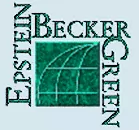The Equal Employment Opportunity Commission ("EEOC") recently announced that its mediation program, which has been operating in various agency field offices on a limited basis since 1995, is being implemented on a nationwide basis. Under the program, many individuals who file discrimination charges with the EEOC will be given the opportunity to participate in voluntary mediation. The mediation process is faster and more efficient than the traditional administrative process used by the EEOC.
The EEOC changed its administrative enforcement program in 1995 in an attempt to manage the 80,000 - 85,000 charges that are filed annually. Under the new charge processing system, charges are prioritized into one of three categories for investigative and resource allocation purposes. "Category A" charges are considered to be priority charges, to which the agency will devote its principal investigative and settlement efforts. "Category B" charges are those which appear to have some merit, but which require more investigation before a handling decision can be made. "Category C" charges include those which are non-jurisdictional, self-defeating or unsupported and which are immediately closed. Most of the charges referred for mediation will be in "Category B."
The EEOC has devoted $12 million of its 1999 budget to hire internal and external mediators and alternative dispute resolution ("ADR") coordinators. All of the mediators will be trained by the EEOC with respect to the EEOC's policies, practices and procedures. The mediation sessions will generally last up to four hours. Everything that takes place during the mediation is confidential. If an agreement is reached during the mediation, the mediator will prepare a written agreement, which will be signed by both parties and an EEOC representative. Agreements reached in mediation have the same effect as other settlements reached through the EEOC and are enforceable in U.S. district court. If there is no resolution to the case as a result of the mediation efforts, the case is referred back to the enforcement unit to continue investigation of the charge.
To protect the integrity of the mediation process, and to quell participant's concerns, everything that takes place during the mediation sessions is confidential. To ensure the confidentiality of the process, note taking by the mediators is limited, and any notes that are taken during the mediation are promptly destroyed at its conclusion. There are no transcripts made of the session. The EEOC stresses that it maintains an impenetrable barrier between its two processes in order to insure that the ADR program is independent of the investigative process.
The pilot programs that have been operating are generally considered to be a success. The New York District Office of the EEOC instituted its alternative dispute resolution ("ADR") program in 1997. That office usually receives more than 5,000 discrimination charges each year. Since August 1997, over 165 cases have been closed as a result of New York's pilot mediation program. Of all the cases that have been mediated, 70% have resulted in the case's resolution. If we may be of assistance in answering questions regarding any of the above, please feel free to contact us by telephone or e-mail as set forth below.
The information provided herein is for general guidance on matters of interest only. While every effort has been made to ensure the information provided herein is accurate and timely, no decision should be made or action taken on the basis of information without first consulting an Epstein Becker & Green professional.
Elliot Mandel Epstein Becker & Green 250 Park Avenue New York 10177-0077 USA Tel: 212 351 4500 Fax: 212 661 0989 E mail: Click Contact Link Please visit our website at Click Contact Link

